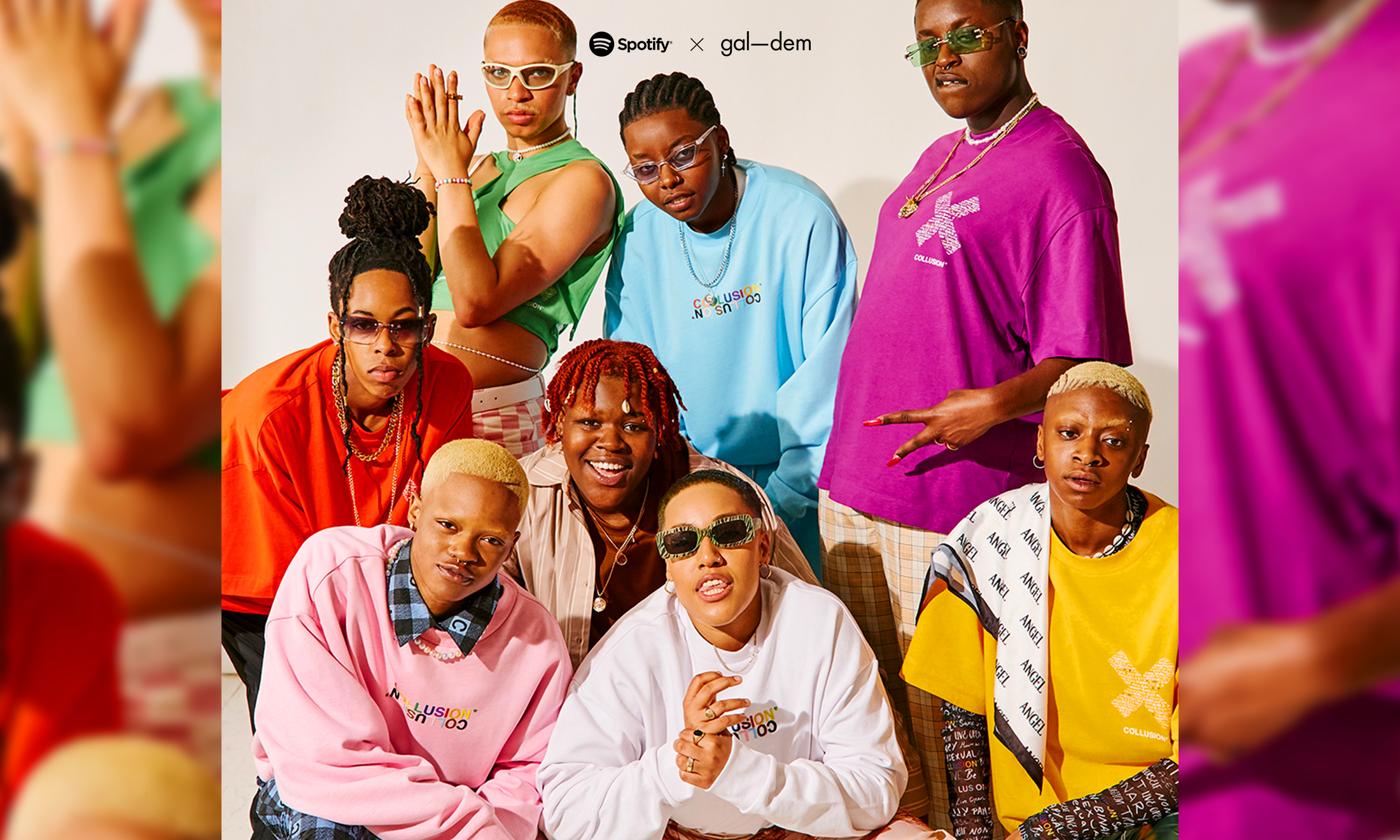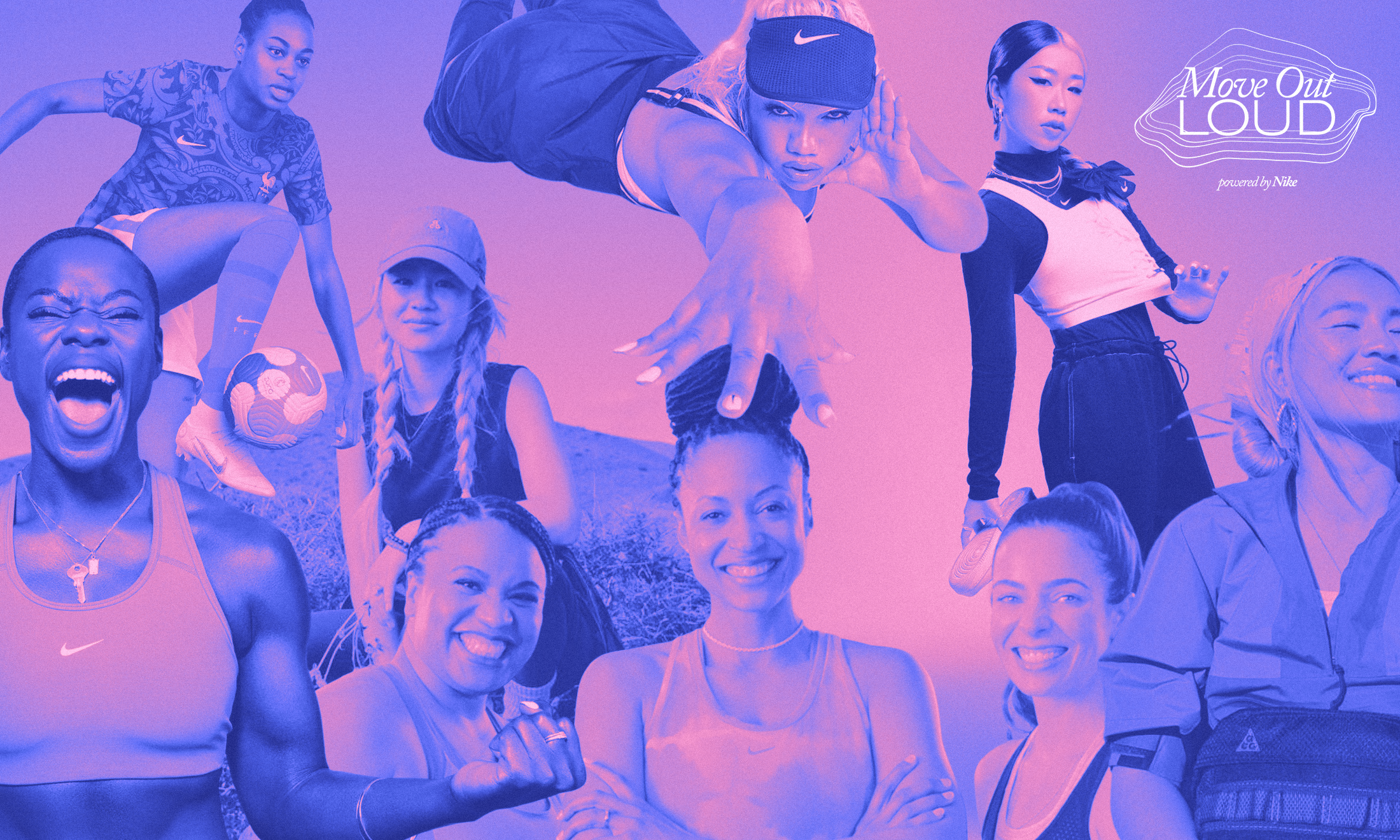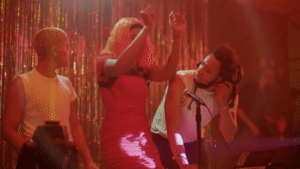
Illustration by Naomi Gennery
‘We don’t see black girls’ tears’: I May Destroy You and being a black woman in therapy
In the aftermath of a sexual assault, Michaela Coel’s character seeks healing via mental health services. For many black women, however, it’s an experience that’s steeped in systemic racism.
Tobi Kyeremateng
16 Jun 2020
Paid partnership with the BBC
Trigger warning: mentions of assault and abuse
In the first few episodes of I May Destroy You, Greentea Peng’s ‘Mr. Sun (miss da sun)’ leaks through my speakers during one of Arabella’s (played by Michaela Coel) introspective moments. The soothing sounds of Greentea Peng’s voice caresses my ears as she repeatedly sings, “I can’t lie, I need you, Mr. Sun/chasing after you, I’m on the run,” and I completely resonate. About a month and a half into lockdown, I started seeing a therapist – black woman therapist – and like most black women seeking therapy, it wasn’t an easy feat.
Over the last few weeks, black woman therapist figures have been creeping their way into visibility on our screens, from Molly’s gentle dragging by her therapist in Insecure, to Arabella’s tender, growing relationship in Michaela Cola’s new drama, I May Destroy You.
From the BAFTA Award-winning Chewing Gum to her starring role in romantic musical Been So Long, Michaela Coel has been a champion of black coming-of-age stories throughout her career.
This month, she’s back with another helping of black British storytelling that’s set to make our hearts sing and challenge our thinking. I May Destroy You features Michaela as Arabella, a popular writer working on the follow-up to Chronicles of a Fed-Up Millennial when she is drugged and assaulted after a night out. After the attack, Arabella seeks therapy to help piece together the chunks of her fragmented memory and overcome her experience. Throughout, we witness the difficulties and joys of Arabella’s therapeutic rehabilitation – a journey that’s mirrored by many black women in the UK.
Seeking therapy generally has its own challenges: the long NHS waiting list, the pricey investment of going through private practices, the seemingly never-ending search for “the right” one. As a process, it can be debilitating and emotionally exhausting. However, for black women seeking a black woman therapist specifically, the hurdles increase tenfold, and resources straddle the line between scarcity and non-existence.
For black communities in the UK, access to mental health services and appropriate treatment and care are statistically lower than for our white counterparts, despite being among the top demographics to be diagnosed (and often misdiagnosed) and four times more likely to be sectioned. The therapeutic space isn’t tailored towards black communities, and black women and girls in particular are left hanging in the balance. “One of the key things is that racism compounds everything,” says Jahnine Davis, co-director of Listen Up Research, a research hub exploring the lived experiences of underrepresented young people, and Ph.D. researcher. “You can’t talk about the challenges black women and girls face accessing support without talking about racism.”
The idea of the “strong, black woman” defines the way black women are treated within mental health services and often leads to the adultification of adolescent black girls. In 2019, Jahnine published the research “Where are the Black girls in our CSA services, studies, and statistics?”, which explored the ways black girls are neglected by child sexual abuse services and further racialised in their experiences of sexual abuse and violence. “Black girls are perceived as less in need of protection, support, and nurture,” she tells me. “When we see a black girl crying, we don’t see their tears – we see an assumption of anger”
“My therapist helped me break down the notion of a ‘strong black woman’ and rebuilt it in line with my personal experiences”
Even in the valid expression of anger, black women with white women therapists still may find it difficult to express themselves without being tone-policed. Karen, a 23-year-old consultant, knows this feeling all too well, noting that her sessions felt “mechanical” and like “being interrogated”. “I felt like she wouldn’t let me feel angry,” she says. ”I didn’t get the chance to be mad. My answers felt really rehearsed. I felt like if I didn’t articulate myself perfectly, they wouldn’t understand me.”
Black women being reaffirmed, especially when it comes to sexual abuse and sexual violence, is an often unspoken part of the intersectionality of blackness and womanhood. The oversexualisation of black women and girls’ bodies adds to the stigma of sexual abuse and can keep some from speaking out about their experiences. Karen adds, “Whether my white therapist believed me or not seemed to not matter. I don’t know if they did believe me. I wasn’t affirmed enough in that way. That affirmation was important. It’s like another way of being seen.”
In the conversations surrounding the dreaded D-word, “diversity”, the need for black women to be able to access black women therapists goes beyond representation politics. Rather, there’s a shared context of black womanhood that alleviates the pressure to constantly explain ourselves into oblivion. “I knew a non-black therapist wouldn’t give me what I needed – I needed an understanding of my womanhood and culture,” says Tolani*, 25, a civil servant, who has been seeing her therapist since September after being assaulted at her home. “This was so specific to my body, and I needed a black woman therapist that I could trust would get it… I blamed myself a lot, and she helped me break down the notion of a ‘strong black woman’ and rebuilt it in line with my personal experiences.”
These subtle cues can be the pillars of the therapeutic space and it’s often the main reason for seeking a black women therapist in the first place. The feeling of someone just “getting it” creates room for vulnerability and authenticity.
“When we see a side-eye, or see someone point with their mouth, or make noises, [those] that are whole non-verbal languages that we all understand,” says Dawn Estefan, a leading psychodynamic psychotherapist specialising in trauma, spirituality, culture and tradition. “The hums, the growls, that laughter from a black woman means a thousand things – there is so much richness and quality in the work.”
For some black women therapists, having black women clients equally impacts the fluidity of the space. “Some people would argue if you are a good therapist you can work with anyone, and to an extent, I agree. However, when a black person is faced with another black person in the therapeutic space, it can do a lot of brilliant things. Working with black women is a joyful experience and we both experience our blackness in the room that gives us a certain freedom.”
Although the demand for black therapists is clear, public bodies are still lacking, forcing black therapists to set up their own practices and acquire funding or go private. The implications of costs keep many black women from accessing the support they need, and the few spaces designed explicitly for black women are underfunded and oversubscribed.
“The only time I’ve had a therapist that was a black woman was when I paid for it myself,” says Sage, 25, who found their former therapist through the Black African and Asian Therapy Network, but had to stop seeing them due to costs. “I am non-binary but still experience misogynoir and black womanhood has very much shaped my life. My current therapist is a white woman that I got through the NHS. I find myself never speaking about my experiences of being non-binary and gay. I feel like I have to pick and choose which part of my identity I want to speak about whenever I have a session. I don’t want to have to explain.”
But when independent practices are set up, what happens to them? As well as working for the NHS, Dawn also runs her own practice, but this isn’t without its problems. “I developed a group called The Black Women’s Psychotherapy Group, which took ages to get funding for,” she says. “With one of the funders I went to, I was told, ‘A room full of black women? How scary.’” Likewise Sistah Space, a bespoke volunteer-led service for black women affected by domestic violence, is currently at risk of being evacuated from their current premises in Hackney in the midst of a pandemic, while organisations like The Maya Centre remain at risk due to government funding cuts, which have already eliminated many black women-specific subsidised sessions.
“When a black person is faced with another black person in the therapeutic space, it can do a lot of brilliant things. Working with black women is a joyful experience”
Alongside the lack of culturally specific spaces for black women to seek therapy, discussions around sexual abuse and violence often centre white women, which in turn shapes policies and data. “Our voices and experiences are missing in research, and how services are identifying and responding is a problem, especially for adolescent black young women,” says Jahnine. In 2013, the NSPCC commissioned “No one noticed, no one heard”, a study of disclosures of childhood abuse, in which a staggering 92% of participants came from white backgrounds. “The policies, assessments, and tools that come from these studies are based around a Eurocentric lens, completely erasing the experiences of adolescent black young women,” Jahine adds.
The trickle-down effect of the lack of research on sexual abuse and violence against black women and girls manifests before we even step into the therapeutic space. Training and educational institutions often centre their teaching around white Eurocentric studies or African-American research, which is conflated with, and simultaneously decontextualises, the experiences of black women and girls in the UK. “I felt like I wasn’t represented in the clinical material we were studying,” Dawn tells me, reminiscing on the responsibility she felt of being “the black one” on a course of predominantly white women. “The training failed to address the complex needs of African and Caribbean people and fell short of ethical planes of social justice and practice within therapy.”
The lack of cultural literacy within the academic space not only devalues the work of black women, but also creates impossible grounds for black women therapists to carry out this work and continues to do black people seeking therapy a disservice on extraordinary scales. “My black woman therapist was the only one to give me a correct diagnosis,” Sage tells me. “The other therapists seemed to shrug my issues off and kept giving me anti-depressants and counseling I wasn’t benefitting from. I entered the mental health service when I was 18 and only got the correct diagnosis when I turned 25.” Unfortunately, Sage isn’t alone in their experience: studies show black communities are likely to be misdiagnosed of affective disorders, but underdiagnosed of depression and anxiety.
In the workplace, black women therapists still experience the same microaggressions as black women in any other field. Dawn recalls moments of being asked whether she is “qualified enough” or having to state her qualifications to clients. These are some of the experiences that bond black women together.
“My current black therapist has reassured me about what it means to be the only black woman in your field and the stereotypes and assumptions that come with that” says Onyi, 33, an agile tech lead. “She can speak to my experiences and give me the room to break down and be vulnerable in a way I can’t do with other white therapists.”
The role of the black woman therapist on screen has been contentious and criticised, with black women being paraded as “mammy figures” in white majority-cast shows. But it is clear that black women therapists play an integral role in the lives of many black women working through pain, trauma, and hardship, and in the journey towards healing, we shouldn’t have to chase the sun to the edges of the earth. We shouldn’t have to fight so hard to be heard.
*Names have been changed to protect identities
This article is part of a paid partnership by gal-dem for the new BBC drama I May Destroy You, written by and starring Michaela Coel, currently streaming on iPlayer








